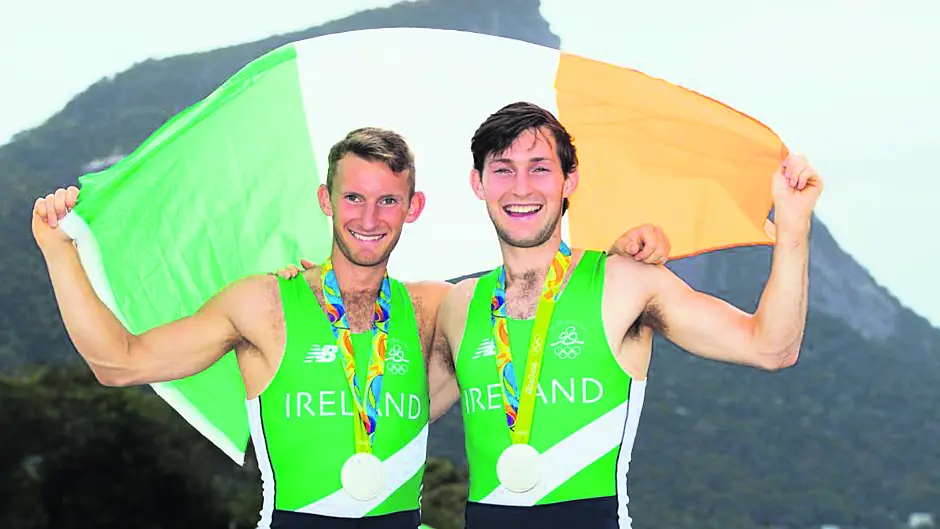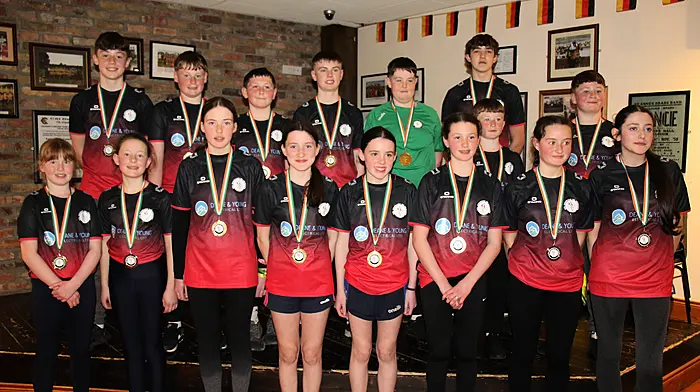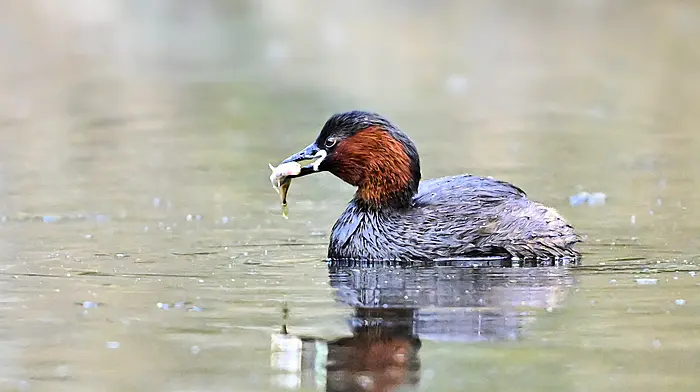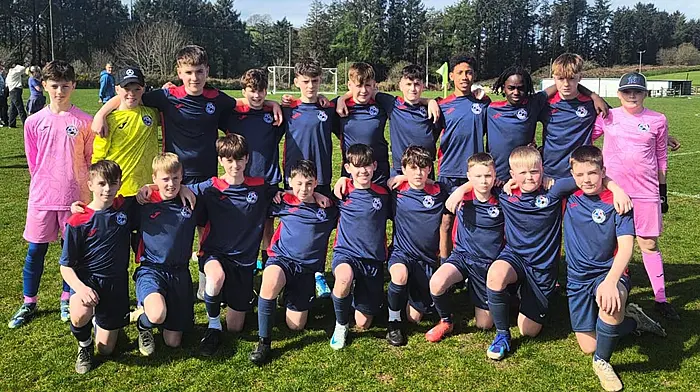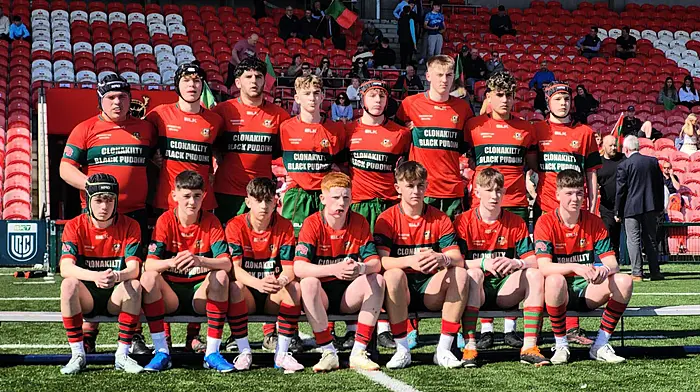The Olympic Games are underway in Paris and there are high hopes of medals coming back to Ireland, and indeed West Cork, over the coming weeks. But a look back through The Southern Star archives shows how Irish hopes have faced setbacks and frustration through the years

A TRAWL through The Southern Star’s coverage of past Olympics leaves a bittersweet taste – mainly bitter!
This paper has reported some ‘fine performances’ – and 11 gold medals. But inadequate funding, ‘disgraceful facilities’, ‘scattershot coaching’, and Britain’s pig-headedness have resulted in underperformance and disappointment along the way.
Just imagine that Paris 2024 was reported in a single paragraph (below) – without a headline – wedged between a story about an air balloon, and another about a dodgy ‘Egyptian’ terracotta cat, probably made in Birmingham. That’s all The Southern Star considered necessary to say about Athens 1896 – the first Modern Olympics – in its April 18th issue that year.
After all, Irish athletes weren’t allowed to represent Ireland, and couldn’t for many years to come.
When 22-year-old Con O’Kelly from Gloun North, Dunmanway, won gold in heavyweight freestyle wrestling in London 1908, he had to compete representing Great Britain, not for Ireland! His achievement was not mentioned in this paper.
On July 12th, 1924, the Star covered the last time Paris hosted the Olympics. It was Ireland’s first opportunity to represent itself as an independent free state. The piece makes a dispiriting read, with ‘two more Irish reverses’: Norman McEachern unplaced in the half-mile and Jim Kelly in the three miles’ chase. Sean Lavan performed ‘creditably’ in the 440 metres, but ‘the fourth day of the Olympic Games has passed without an Irish victory’.
Only in 1928 could the paper celebrate, when hammer thrower Pat O’Callaghan from Dromtarriffe, Co Cork, brought Ireland’s first gold medal home from Amsterdam. Readers could cheer again when he took another gold in Los Angeles, 1932, as did Tipp’s Bob Tisdall in the 400-metre hurdles.
Further success was hampered by factors beyond the athletes’ control – notably Britain’s refusal to allow Northern Ireland athletes in the Irish team. The Star slammed this decision, which led to Ireland boycotting the 1936 Berlin games. Organisation was also at fault. When arriving at Helsinki in 1952, marathon runner Joe West from Carrigaline discovered that the Irish manager had returned home, and he had no accommodation. He finished a disappointing 49th.
Britain’s veto – which lasted until the 1998 Good Friday Agreement – meant that only a ‘tiny Irish team’ could be raised to travel to Melbourne in 1956. It made Ronnie Delany’s gold medal in the 1,500 metres, an Olympic record (3 mins 41 secs), even sweeter – of ‘inestimable value to Ireland’s prestige’ (Star, November 24th and December 8th 1956).
Other disheartening competitions followed, so that 40 years later, Tom Lyons sadly noted: ‘We face each Olympics with hope, more than confidence, of a medal. Any medal, any colour’. With little state help on offer, the onus was on the individual athlete’s personal commitment. The paper had already highlighted the case of Margaret Murphy from Ballymakeera – the first woman to represent Ireland – who competed in the pentathlon and 100 metres hurdles at Munich 1972 with almost ‘non-existent’ help. ‘I used to train in a hay field,’ she said. Her six and seven-year-old daughters, Jean and Deirdre, helped with her stretching exercises, and she depended on receiving training tips through the post!
The first woman to win a gold medal for Ireland was swimmer Michelle Smith from Dublin – awarded three golds and a bronze in Atlanta 1996. But there was a sting in the tail: in 1998 she was found to have a tampered urine sample and banned from future competitions.
Irish rowers had to settle for fourth place, and canoeists also ‘disappointed’. The equestrian team was ‘within reach of a medal’ until the horses got injured. And the big hope, Sonia O’Sullivan from Cobh dropped out due to illness. ‘By the second Sunday we were returning to our normal Irish performances’ (Star, August 24th, 1996).
Reaching the millennium, we witness Britain ‘basking in the glory’ of its greatest medal haul in 80 years, while Ireland was ‘pulverised by post-mortems’ and ‘recrimination’. The nation had over-relied on ‘scattershot coaching’, concentrated time and money on GAA, and remained ‘severely handicapped’ for sponsorship and facilities (Star October 14th, 2000).
In this context, the recent achievements of West Cork athletes have been truly impressive. Skibbereen’s Richard Coakley finished 10th in the lightweight coxless fours at Beijing 2008; Michael Ryan from Curraclough, Bandon, finished fifth in team dressage, cross-country and horse jumping at London 2012, and ‘Lisheen Legends’ Gary and Paul O’Donovan caused a sensation when they won silver in rowing at Rio 2016.
For Paris 2024, the Olympic Federation of Ireland has spent a record €4.7m on training resources, coaches, and equipment (up from €3.3m for Tokyo 2020) – an average of around €40,000 on each of the 116 athletes. But that’s a drop in the ocean compared with the USA, which, according to Olympic blogger Emma Bailey, will be spending an estimated $2.3m (€2.1m) on each of its 562 athletes – about 50 times as much!
With rich countries at such a huge advantage, Tom Lyons may not have been far wrong when he noted in his 1996 report that Olympic success can simply depend on ‘catching the big guy on an off day’.
Ireland's showpiece gold medallists
• Pat O’Callaghan, men’s hammer throw, 1928 1932
• Bob Tisdall, men’s 400m hurdles, 1932
•Ronnie Delany, men’s 1500m, 1956
• Michael Carruth, men’s welterweight boxing, 1992
• Michelle Smith, swimming 400m individual medley, 1996; 400m freestyle, 1996; 200m individual medley, 1996
•Katie Taylor, women’s lightweight boxing, 2012
• Fintan McCarthy and Paul O’Donovan, men’s lightweight double sculls, 2020
•Kellie Harrington, women’s lightweight boxing, 2020
Strange but true – six Olympic mishaps
• No gold medals were struck for the winners of the Paris Olympics, 1900. Athletes were given an umbrella or a walking stick instead.
• St Louis Missouri, 1904 excluded ‘savage and uncivilised tribes’ from taking part, and witnessed one marathon runner being chased by wild dogs, another hitching a lift for 11 miles.
• South Africa’s lightweight boxer Thomas Hamilton-Brown lost his opening match in Berlin, 1936. To cheer himself up, he binged. But there’d been a mistake: he’d actually won. Unfortunately, he was now five pounds heavier and failed the weigh-in.
• When Joseph Barthel from Luxembourg unexpectedly won the 1500m in Helsinki, 1952, the band didn’t know the Luxemburg anthem, so made something up.
• Student Barry Larkin carried a hoax Olympic torch made from a chair leg, a pudding can, and a pair of flaming underpants through Sydney on route to Melbourne in 1956, fooling a police escort and the lord mayor.
• Sadly, 11 of the beautiful white doves released during the opening ceremony at Seoul, 1988, landed in the cauldron just as it was being lit. They were incinerated.

